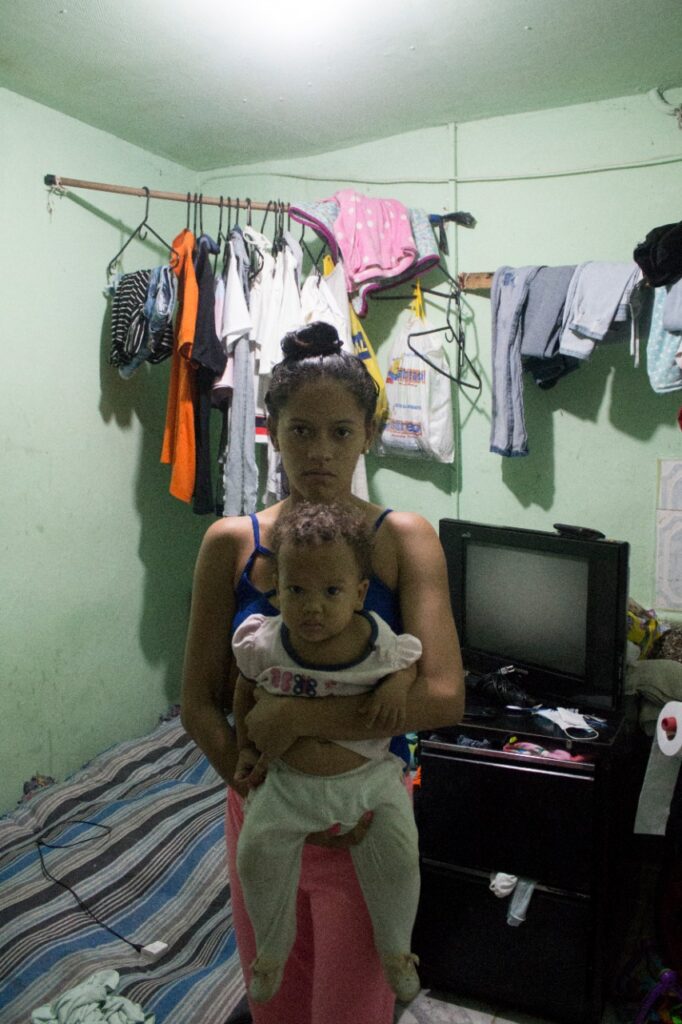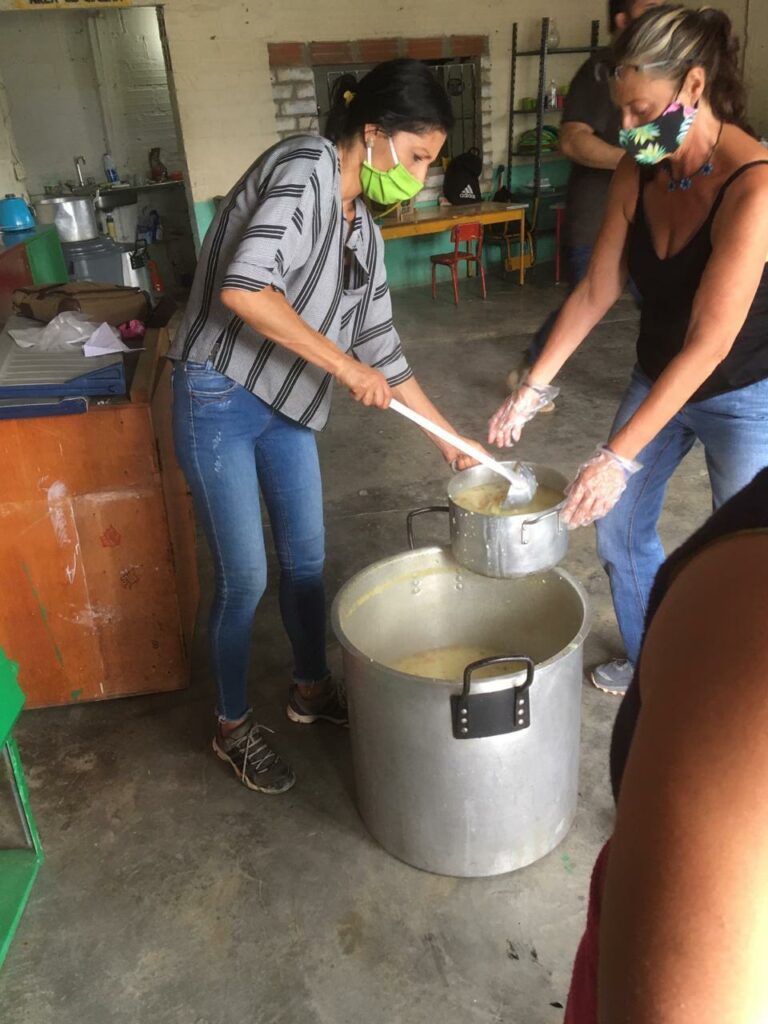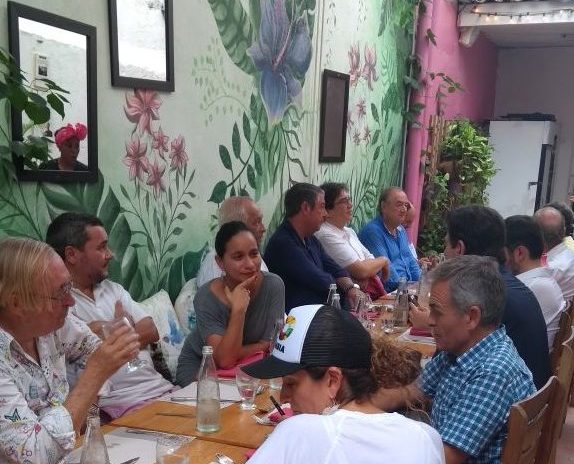Hunger in Latin America has been growing for years. Even prior to the COVID-19 crisis, people in the region have struggled to afford nutritious foods or have lacked access to food altogether. According to data collected by the United Nations in 2019, 28.5 percent of South Americans and 39.3 percent of Central Americans have experienced moderate-to-severe food insecurity in their lives. With the onset of a global pandemic, UN representatives now fear that “if projections continue […] we could be going back to the [malnutrition] levels of the 1990s.”
The situation is not for lack of food in Latin America – which is the world’s most biodiverse continent and the leading exporter of agriculture and fish – rather that citizens cannot afford basic essentials like food. Quarantine measures have meant the 130 million people operating in the informal sector have been unable to work for months. Soaring COVID-19 infections have meant households have been left without any form of income when the primary earner has died. And, supply chains and food production have been severely disrupted, causing food prices to increase by more than 10 percent.
Women and Venezuelans most at risk of hunger
Women are one of the most vulnerable groups amid the rising barriers to food and nutrition. Women are losing their jobs at a faster rate than men and school closures mean they have to take on additional unpaid care work at home – leading to greater pressure to buy and cook meals for their families. It’s estimated that these extra responsibilities and economic disadvantage in the crisis will leave 118 million women and girls in poverty.
“After just a few months of quarantine we noticed a drastic change in Medellín … there was a sense of desperation and uncertainty”
Erin Colton-Enberg, co-founder Proyecto Florecer
Venezuelan migrants are also subject to greater food insecurity. A survey by the UN World Food Programme found that 7 out of 10 migrants in Colombia, Peru, and Ecuador were worried about being able to feed themselves and their families. Based on the responses, the number of migrants who eat one meal a day or who had not eaten the day before has more than doubled in the pandemic.
Because the majority of migrants don’t have access to social protection, public health services, or employment, they are being forced to return to Venezuela. Tens of thousands have already made the journey back to the country they once fled – a country that is battling acute food insecurity due to ongoing hyperinflation and chronic fuel shortages. Not only is their end destination troubled, the closure of land borders to curb the virus spread has impacted organizations offering food and shelter to traveling Venezuelans. For instance, in March the Colombian government instructed NGOs operating at the Cúcuta border to restrict their activities to half capacity.
Local initiatives needed to address immediate food insecurity
In response to the hunger emergency, UN agencies are proposing a $23.5 billion grant to deliver cash transfers, food baskets, and vouchers to people living in poverty in Latin America. The UN also advocates increasing food producers’ credit portfolios and access to development loans, as well as reinforcing school food schemes. However, these solutions take time to implement at scale and can’t address the immediate needs of people experiencing hunger in the region, particularly for women and Venezuelans. As food insecurity sweeps into more nations and communities, grass-roots initiatives are reaching the people most affected and building their own pathways to improve access to food.

In Colombia, non-profit Proyecto Florecer has opened a community kitchen to serve some of the most impoverished women and children in the city of Medellín. Since opening in October 2020, volunteers in the kitchens have provided more than 11,250 hot, healthy meals and 183 grocery packages to women, Venezuelans, and local residents. The project was born after co-founders, Mar Rosati, Erin Colton-Enberg, and Sheridan Bibo, interviewed female heads of households at the beginning of the pandemic. When asked about their biggest concern for the future, many of the women replied ‘food.’
“After just a few months of quarantine we noticed a drastic change in Medellín” says Erin, “there was a sense of desperation and uncertainty as people couldn’t find work or feed their families, especially for single mothers and Venezuelan refugees […] Our community kitchens are a starting point for those people.”
The kitchens are open two days a month and are managed by local women from the areas, all of whom are provided full PPE. In exchange for their contributions, the women are given workshops on leadership, logistics, and finances, and one person is assigned the role of ‘Kitchen Boss,’ where they organize and mentor colleagues. The idea is to give back to communities while also supplying women with new skills that boost their employability. Beyond restoring food security on a micro level, Proyecto Florecer empowers women as agents of change who can break the cycles of poverty they exist within.

Research shows that when more women work, economies grow – which can pave the way for more jobs, financial stability, and sustainable food security. By combining food, employment, and education, Proyecto Florecer’s kitchens aim to help women and migrants survive in the pandemic, as well as thrive beyond it.
The pandemic has deepened inequities in Latin America, and as the region braces itself for a second and third wave – in addition to the repercussions of a new virus variant and mass vaccine rollouts – food security could deteriorate further. While overwhelmed governments fail to account for some of the most vulnerable groups in society, organizations like Proyecto Florecer are doing what they can to feed people on the journey to recovery in Latin America.
Grace Brennan is a writer and editor living in Colombia.


